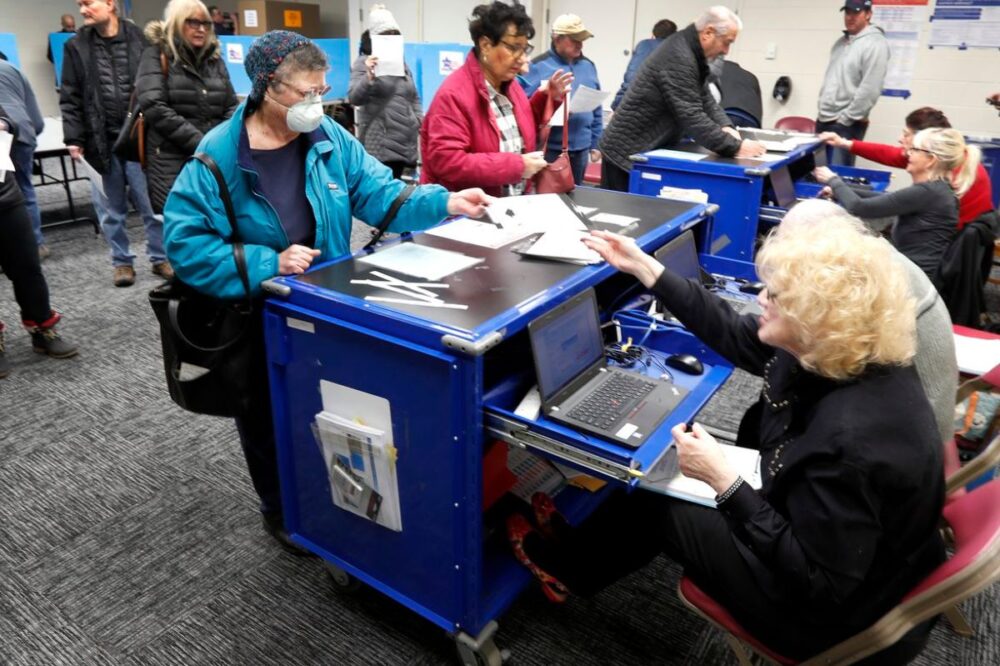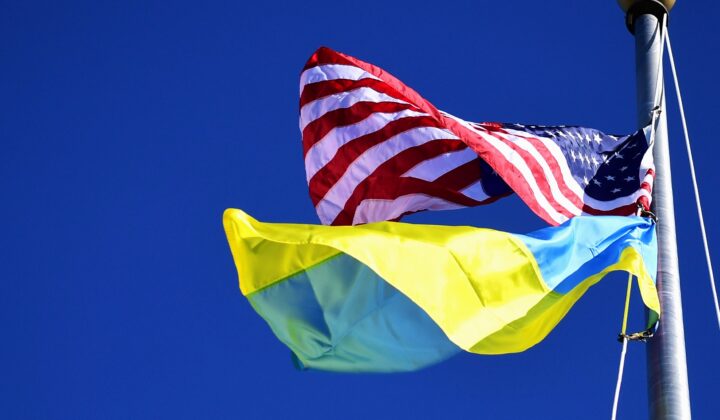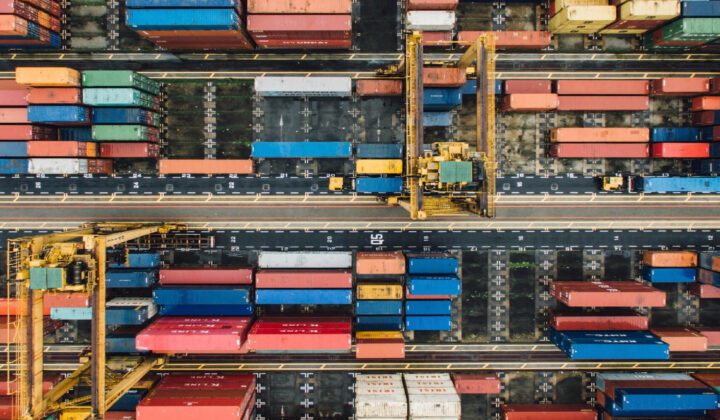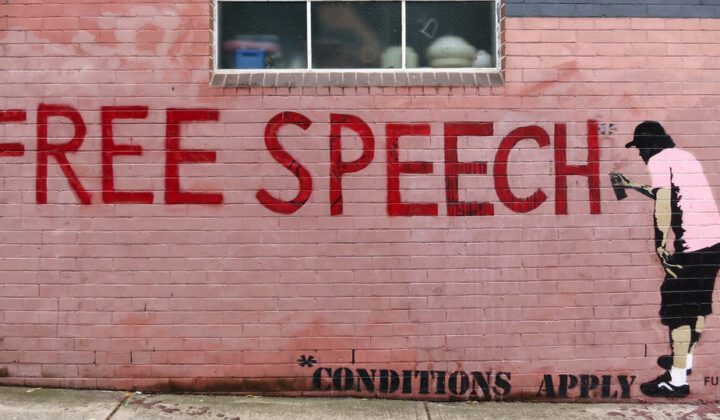Coronavirus Pandemic Tests Our Political System
Last week, Louisiana became the first state to postpone its primary due to coronavirus concerns, with Georgia, Kentucky, and Maryland following suit. The Wyoming Democratic Party has canceled in-person voting for their upcoming caucuses in April, urging people to vote by mail instead. And the Ohio governor, despite a judge’s ruling against delaying the state’s primary, announced that polls will be closed. These delays and cancellations present real challenges to our democratic system, especially in the midst of a presidential primary. But these difficulties pale in comparison to what would happen if the pandemic continues throughout the summer up until the November 2020 elections, or if the virus recedes in warmer weather, only to return next fall.
Indeed, next November, we might all find ourselves asking a series of increasingly worrisome questions: How many people will actually turn out to vote if the choice is between staying home and being safe or voting at the polls and possibly contracting the disease? How can in-person voting under these circumstances be fair, especially for older people who are most at risk? Should we postpone the elections? Would that even be constitutional?
- What can we do to avoid this nightmare scenario?
It is absolutely essential to implement voting mechanisms that respect social-distancing guidelines, such as absentee voting (any alternative way to vote when a person can’t physically make it to the polling station) and curbside voting (accomodations to vote near a polling station as opposed to inside it). The most common (and desirable) form of absentee voting is vote-by-mail. Unfortunately, there are many obstacles to its implementation. One-third of states don’t allow vote-by-mail without a valid excuse. Furthermore, the vast majority of states still depend on in-person voting as their primary method of voting, and so switching to a vote-by-mail system would place a tremendous strain on election officials. As a recent Slate article notes: “Ballots have to be produced (in multiple languages) and mailed to millions of people. Procedures have to be put in place to verify voter identity and to assure that voters voting by mail are voting freely and fairly.” This process could take months and cost a significant amount of money. Governors and leaders across the country must begin working with Congress now to consider legislation, both at the state and federal level, that provides for vote-by-mail or curbside voting next fall. - What is a possible worst-case scenario?
States could try and cancel their popular presidential elections, designating state legislatures, rather than the people, to select Electors to the Electoral College. As a reminder, the Electoral College is a process in which the electors—538 individuals in total—meet in their respective states and cast votes for the President and Vice President, with Congress conducting the official vote count. And remember, the Constitution empowers the states to decide how to appoint their electors; citizens don’t have a constitutionally guaranteed right to vote for president. Although no state selects its Electors through non-popular means anymore, they theoretically could. Such a move would be viewed as illegitimate by many, if not most, in such a polarized climate, but it is not out of the realm of possibility. America can prepare for such eventualities by coming together and pushing for vote-by-mail and curbside voting in the coming months. - How about online voting? Is it a solution?
No. At least not yet. Perhaps one day, with advances in blockchain technology, it will be possible to cryptographically ensure that voting online is safe, hack-proof, and tenable. But we’re not there yet. It would be far too great a risk to try and pull this off now when we know that groups and nations across the world, including the Russian government, have the capacity to infiltrate electoral computer systems.

Erik Prince Uses Espionage Tactics to Infiltrate Liberal Groups
A recent New York Times investigation revealed that Project Veritas, a private conservative group known for targeting liberal groups using undercover tactics, partnered with Erik Prince as part of its efforts to discredit groups critical of the Trump administration. Mr. Prince founded Blackwater (now Academi), the private military company that was linked to human rights violations in Iraq. He is also the brother of Education Secretary Betsy DeVos.
Specifically, the New York Times reports that Prince helped recruit former intelligence agents such as former MI6 officer Richard Seddon for operations conducted by Project Veritas. Those operations included infiltrating a Democratic congressional campaign and the American Federation of Teachers—the second largest teachers’ union in America.
- What are the implications of Prince’s and Project Veritas’ behavior for democracy?
Regardless of one’s political persuasion, Prince’s recruitment of ex-spies for Project Veritas is extremely troubling. In a democracy, espionage should be reserved for matters of national security. It is dangerous to have unaccountable private actors advance into such sensitive domains, especially when those private actors used to be former intelligence officials. Indeed, these kinds of activities are notoriously difficult to oversee and control, even when managed within government. And just as importantly, non-governmental espionage is likely to further erode the people’s trust in democracy. This is only exacerbated by the fact that those Prince recruited were former government spies. These actions are par for the course for Prince. Indeed, his activities with Blackwater and Project Veritas share a common theme: private companies taking over areas that should be reserved for the government. - Are there other examples of this kind of espionage?
Another example of this troubling phenomena involves the former Hollywood mogul and recently convicted rapist Harvey Weinstein. Weinstein recruited a private espionage firm called Black Cube, founded by ex-Mossad members, to surveil and investigate his accusers. Intelligence agencies should take a greater interest in how their retired members use their high level training post-retirement.

Hope for a Democratic Future in Africa
Despite many obstacles to a democratic future for nations across Africa, there have been democratic successes of late that could spur further change. South Africa’s notoriously corrupt president Jacob Zuma resigned under pressure from his own party and the threat of a vote of no confidence looming over him. Zuma’s replacement, Cyril Ramaphosa, has pledged to reform the ruling African National Congress (ANC) and the nation. In Sudan, the long-time dictatorship of Omar al-Bashir was overthrown. And in Malawi, the constitutional court annulled election results in response to irregularities in the vote.
One reason for hope is Africa’s burgeoning young population that, frustrated by repression and lack of economic opportunity, has become a major force in protest and democratization. Young urbanized Africans, with more education and fewer ties to traditional ethnic and party allegiances, are more likely to abandon the status-quo and push for major changes in government.
Furthermore, the examples of Malawi and South Africa point to the important role of institutions in growing and defending democracy in Africa. In Malawi, the court checked the growth of executive power, while the South African parliament pushed for the removal of Zuma. Hopefully, Sudan’s revolution will be grounded in robust institutions. As always, the construction of accountable and empowered institutions does more for the long-term democratic health of a nation, than the fleeting rule of a charismatic leader ever could.
- What are some of the obstacles to democratic reform across Africa?
African nations have encountered many systemic obstacles to democracy. The colonial legacy of autocratic governance, elite rule, and resource extraction, coupled with great power support for autocrats during the Cold War, put independent African nations in situations that prevented democratization. And despite the wider use of elections after the Cold War, in recent years, the presidents of Sudan, Uganda, Burundi, and Togo sought to make legal changes that would allow them to rule indefinitely. Even established democracies like Zambia and Senegal have backslid into more authoritarian rule.Another contributing factor to recent African authoritarian tendencies is the US retreat from the continent, which has allowed China, and, to a lesser extent, Russia, to step in as financial and political power-players in the resulting vacuum. In order to continue to fan the spark of democracy in Africa, the United States should reassert itself and help Africa’s rising generation institute its democratic demands by supporting effective institutions and opposing authoritarians.

Kentucky Restores Civil Rights for Ex-felons
Gov. Andy Beshear of Kentucky has announced a new website where ex-felons can check whether their voting rights have been restored. In total, 152,000 people who had served their prison sentence or completed probation or parole can now vote, allowing more Kentuckians to vote and participate as full citizens in society. The executive order did not apply to people who had committed violent crimes or federal offenses.
In the United States, as of 2016, 6.1 million people were unable to vote because of felony convictions. While 16 states and the District of Columbia automatically re-enfranchise felons upon release, and Vermont and Maine don’t disenfranchise prisoners, 31 different states still have laws disenfranchising current and former felons. However, in recent years, there has been a movement to undo these laws.
In 2019, Louisiana re-enfranchised 36 thousand ex-felons. And most notably, in 2018, Florida voters passed an amendment to the state constitution to re-enfranchise felons, which would allow roughly 1.5 million people to vote again as well as hold political office. Prior to this vote, 1 in 5 Black people in Florida had been disenfranchised. Although it should be noted that the new amendment has faced a variety of legal and political challenges.
- What is the history of felony disenfranchisement in the United States?
Barring those who have committed felonies from voting has an ugly, racialized history in America. Following the end of Reconstruction, white supremacists in state governments sought to marginalize black electoral power through various methods, including poll taxes, literacy tests, and mob violence. They also exploited the language of the 14th amendment, which can be interpreted to support denying the vote to individuals based on criminal convictions. This tactic disproportionally prevented African Americans from voting, and it has been one of the most enduring relics of 19th century racial discrimination.Today, 2.2 million of the 6.1 million disenfranchised in this country are African Americans. Indeed, African Americans are disenfranchised at 4 times the rate of all other racial groups combined. Undoing voter disenfranchisement laws across the country could go a long way to addressing systemic injustices and making our democracy more representative. Furthermore, research suggests that restoring felons’ right to vote lowers the rate of re-offense because it helps rehabilitate and reintegrate ex-felons into society.





